2-Day Complex Trauma – Victoria Grinman (Digital Seminar)
Description
Today’s best clinicians know that effective treatment of trauma must include helping clients connect with and release deeply embedded traumatic stress in the body.
But engaging clients in this work can be difficult. People who have experienced trauma often feel like strangers in their own bodies, disconnected from somatic awareness and stuck in the past, dominated by innate trauma responses like:
- Emotional numbing and dissociation
- Affective overwhelm
- Dysregulated autonomic arousal
- Intrusive thoughts and memories
- Loss of words or coherent narrative
- Lack of trust in others
- Impulsivity and aggression
Though protective in nature, these responses now serve as barriers to healing and living a connected, fulfilling life. How can you help clients release the stored trauma and re-establish the mind-body connection they so desperately need?
Watch Victoria Grinman, PhD, LCSW-R, for this transformational 2-day experiential workshop that will change how you treat traumatic stress in clients of all ages.
Through experiential exercises and masterful explanation, Dr. Grinman will demonstrate how easily you can integrate somatic and sensory-based techniques into your practice to help your clients heal beyond words.
Backed by neuroscience research yet practical in nature, these interventions incorporate yoga, movement, mindfulness, touch, interoception, dance, play and music into your work at a level that is comfortable for you. No previous experience required! Purchase today!
Outline:
Application of Theory and Integrating Interventions
Neuroscience, Trauma, and the Body
- Single vs. repeated vs. extended trauma
- Developmental trauma vs. complex trauma
- Adverse childhood experiences
- Current research on the neurobiology of traumatic stress
- How trauma affects the developing mind and brain
- The psychological impact & long-term effects of trauma on physical & mental health
- Stress response patterns as survival strategies
- Fight, Flight, Freeze, Faint, Fawn, Fool around & Fidget
- Strategies to help clients understand and process what is happening in their body
- Hyper- and hypo-arousal and the window of tolerance
- The impact of trauma on somatic experiencing and the sensory system
- How sensorimotor processing can alleviate the re-experiencing of trauma
The Neurobiology of Attachment
- Differentiating between disrupted attachment and traumatic stress
- Interpersonal neurobiology
- Mirror neurons, empathy and connecting with others
- Relationships can reshape our brains
- Attachment and attunement in the therapeutic relationship
- Attachment style impacts your client’s relationships
- Neurological basis of attachment and co-regulation
- Current research on yoga and mental health ~ benefits, risks & limitations
The Triune Brain, Regulation and Polyvagal Theory
- Current research on yoga and mental health ~ benefits, risks & limitations
- The importance of understanding the triune brain and how yoga…
- Calms the amygdala and quiets the brain
- Regulates our arousal system
- Widens the window of tolerance
- Top-down and bottom-up regulation
- Heart rate variability (HRV) and vagal nerve tone
- Yoga as a clinical intervention to treat symptoms of complex trauma, anxiety and depression
- Embodied strategies teach the brain and body to work in harmony
- Reframe trauma experiences
- Increase self-regulation
- Connect clients to a mind-body awareness
- Increase positive experiences
- Promote healing & Improve mental health
Applications for Trauma Treatment
- Clinical applications for yoga
- Foundation of traditional yoga informs the 5 themes
- The 5 themes of trauma-informed yoga
- Strengths and limitations of yoga as part of psychotherapy
- Create and communicate therapy goals reflecting the themes
- Integrating trauma-sensitive yoga in clinical work
- Practice and adapt yoga for a variety of settings, abilities & age levels to…
- Restore the capacity to play through games & creative movements
- Increase trust & build healthy attachments through family and partner yoga
- Decrease dysregulation & improve distress tolerance skills
- Reduce emotional numbing, depression, and dissociation
- Help children and adults gain mastery over their lives with mindfulness techniques that can reduce intrusive images and “stuck” memories
- Expand capacity for self-awareness with breathing exercises and interoceptive cues
NLP online course
So what is NLP?
NLP stands for Neuro-Linguistic Programming. Neuro refers to your neurology;
Linguistic refers to language; programming refers to how that neural language functions.
In other words, learning NLP is like learning the language of your own mind!
NLP is the study of excellent communication–both with yourself, and with others.
It was developed by modeling excellent communicators and therapists who got results with their clients.
NLP is a set of tools and techniques, but it is so much more than that.
It is an attitude and a methodology of knowing how to achieve your goals and get results
Preview Information:
Original Page
Add more Author:
Victoria Grinman, PhD, LICSW-R, is a psychotherapist, educator and speaker with over 15 years of experience supporting individuals of all ages and differences in life perspectives, and their families. She is the founder of Growing Kind Minds LLC, a private practice and community resource. She is a Certified Family Trauma Professional, a trained yoga and mindfulness instructor to children and adolescents through Little Flower Yoga, and a certified aromatherapist through New York Institute of Aromatherapy. Victoria was a proud faculty member of Columbia School of Social Work, Boston College School of Social Work and Adelphi University. Her areas of deep focus include Posttrauamatic Growth, trauma, parenting and autism.
Victoria has extensive experience providing individual, group and family therapeutic services utilizing an integrative approach that is informed by theory and grounded in a holistic and strengths-based perspective. She has been invited to be a speaker at universities, organizations and community groups on topics that span the areas of yoga and mindfulness, play therapy, neuropsychology education, emotional literacy, education, clinical practice, disabilities, trauma and autism; and provides consultation in program development, and social-emotional curriculum building and implementation to schools and corporations. Victoria participates annually in national and international conferences.
Victoria is the host of That Moment: Heart to Heart Talks with Dr. Victoria Grinman, a talk show and podcast that sheds light on the possible outcome of Posttraumatic Growth in the wake of an experience that overwhelms our ability to cope. The talk highlights influential and inspiring individuals in the world and their story of struggle to triumph. She enthusiastically looks for new ways to facilitate and promote resiliency, empathy and wellness. She is excited to be part of the process of sharing tools and meeting people in interdisciplinary realms with like goals to empower others.
Speaker Disclosures:
Financial: Victoria Grinman is an adjunct professor for Adelphi University. She has an employment relationship with The Summit School and New York Therapy Placement Services. She receives a speaking honorarium from PESI, Inc.
Non-financial: Victoria Grinman has no relevant non-financial relationships to disclose.
More Course: NLP – HYPNOSIS – PHILOSOPHY
Outstanding Course:Design and Installation of a Motivation Strategy – Elements of NLP – Module 01 by Chris Mulzer


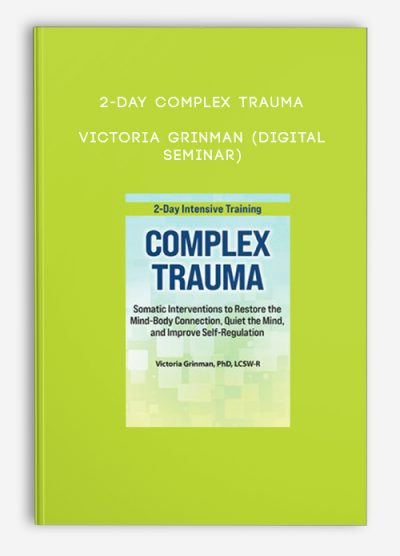
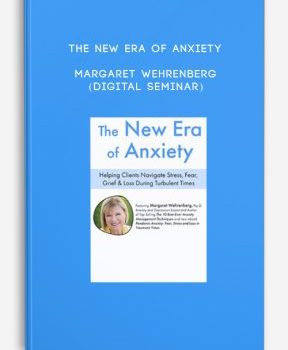
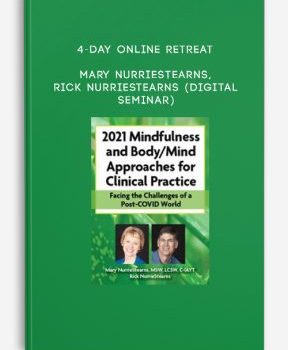
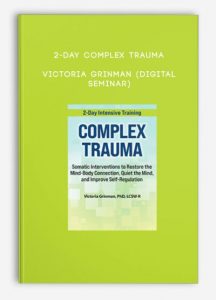

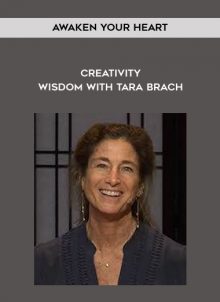
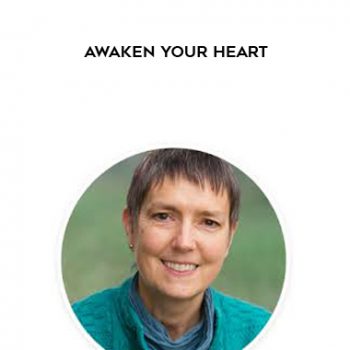
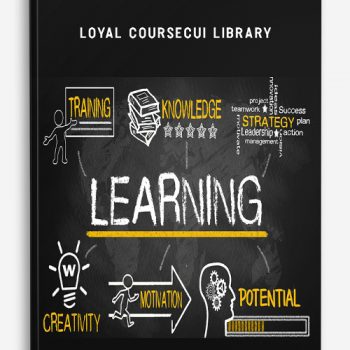
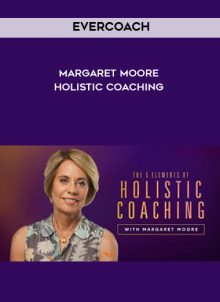
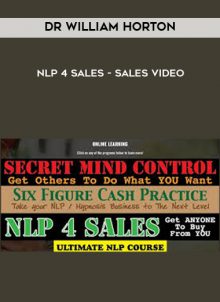
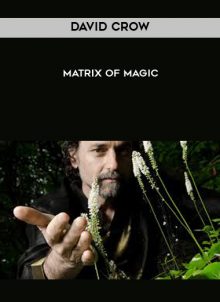
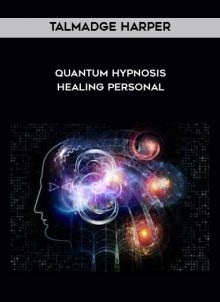
Lord –
This is Digital Download service, the course is available at Coursecui.com and Email download delivery.